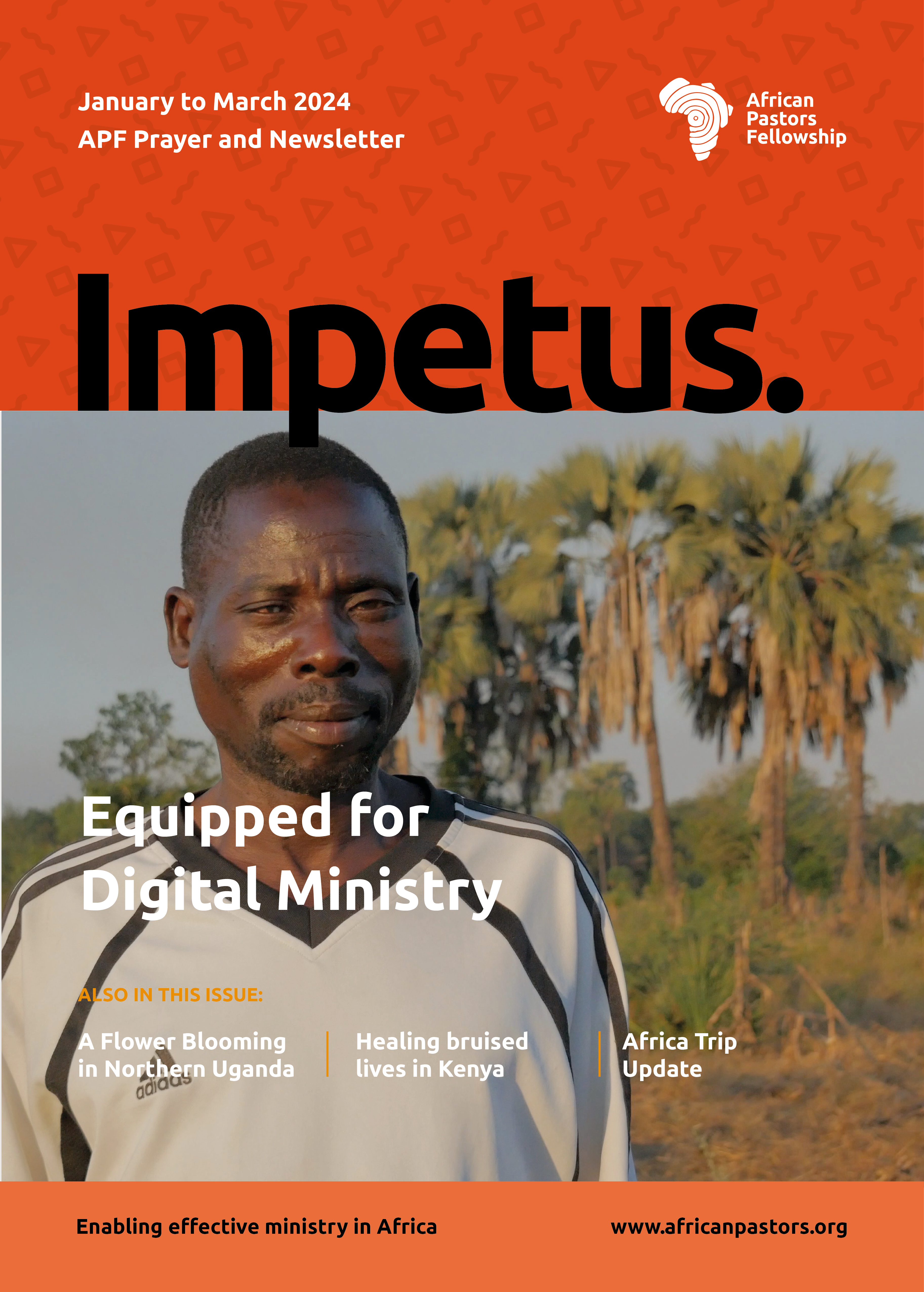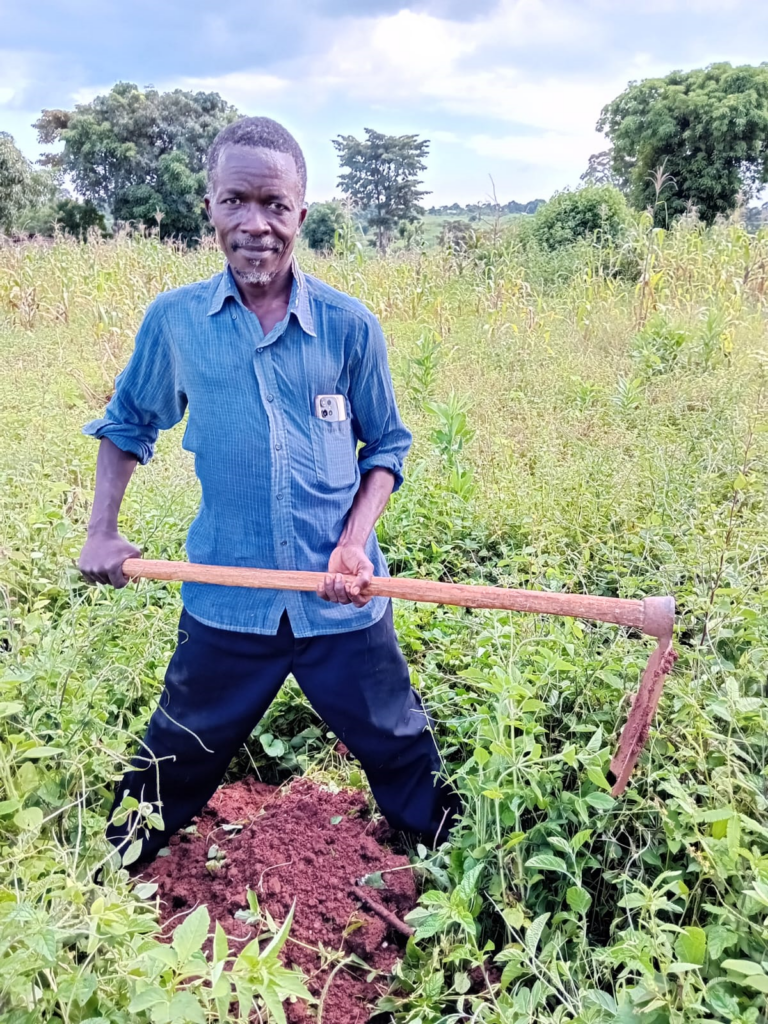
In November and early December, Dave Stedman met with key APF partners in Uganda and Kenya. Here’s a few of his photos and highlights of his trip.
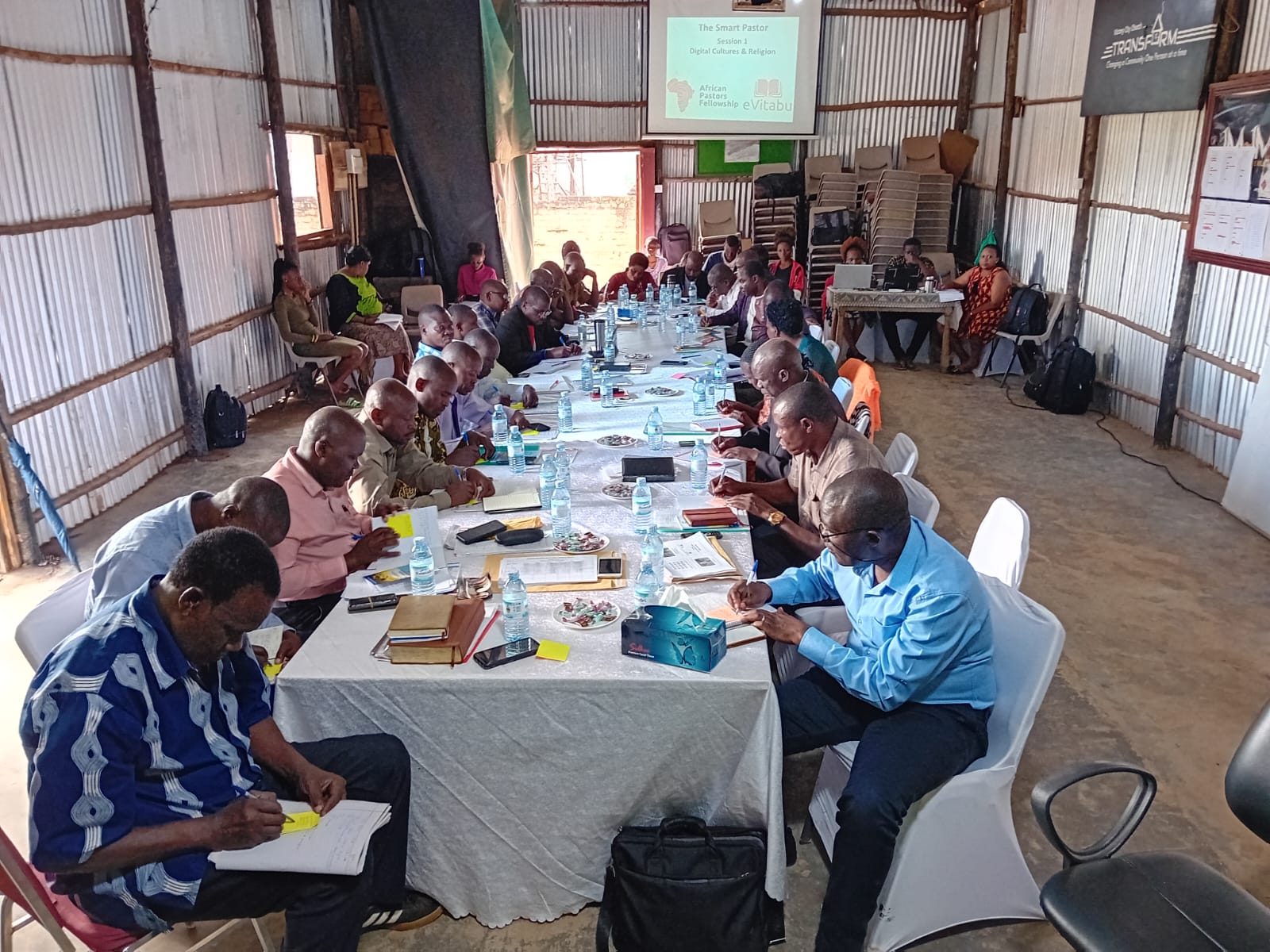
In Kampala I met with regional overseers of the Uganda Assemblies of God churches for an eVitabu induction and a Digital Theology Taster workshop.
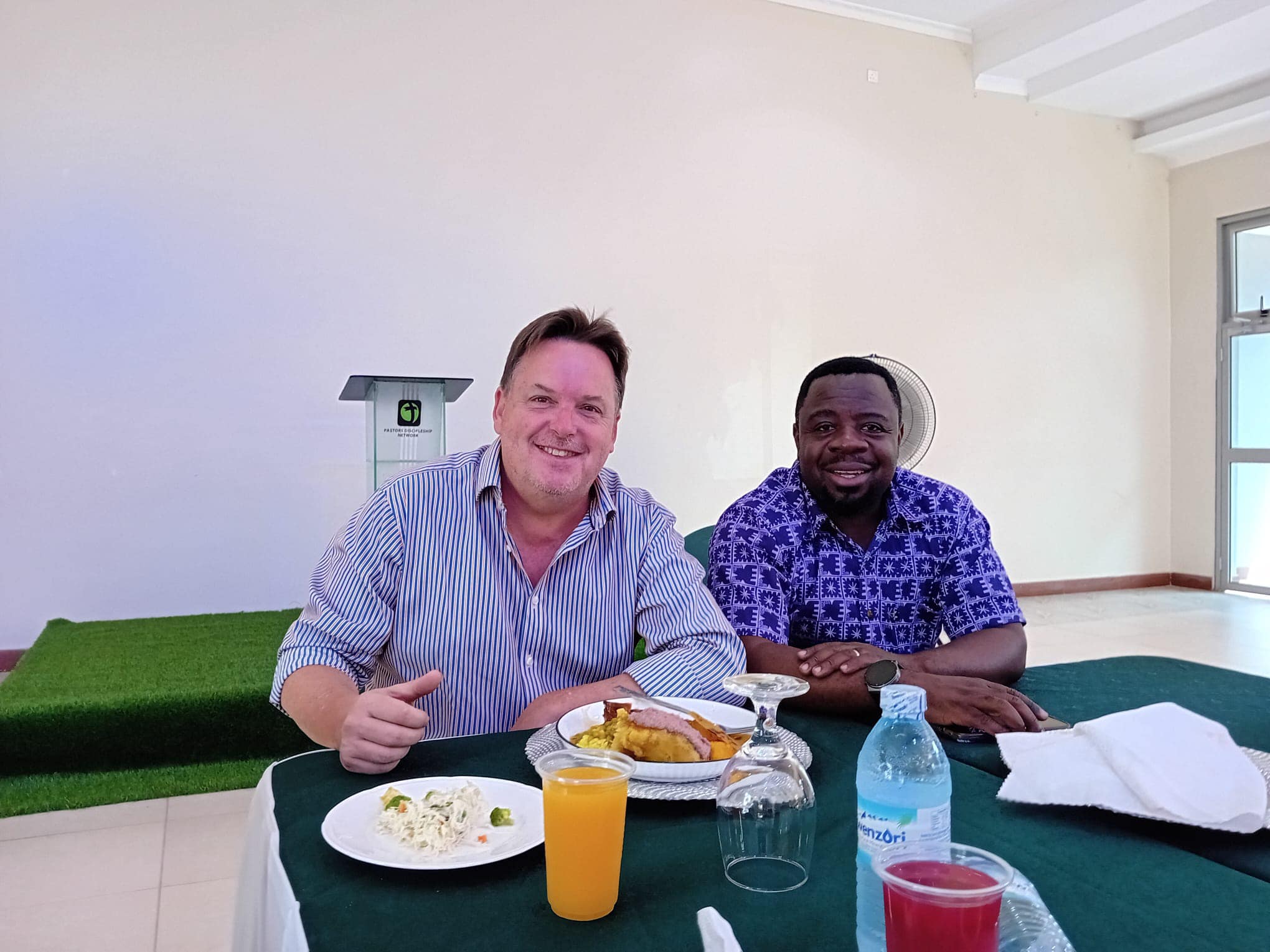
Lunch meeting with Ben Mutegeki, Managing Director of Pastors’ Discipleship Network and Cornerstone University. There are exciting plans for Digital Theology to be part of the curriculum at PDN and they discussed growing the partnership with APF.
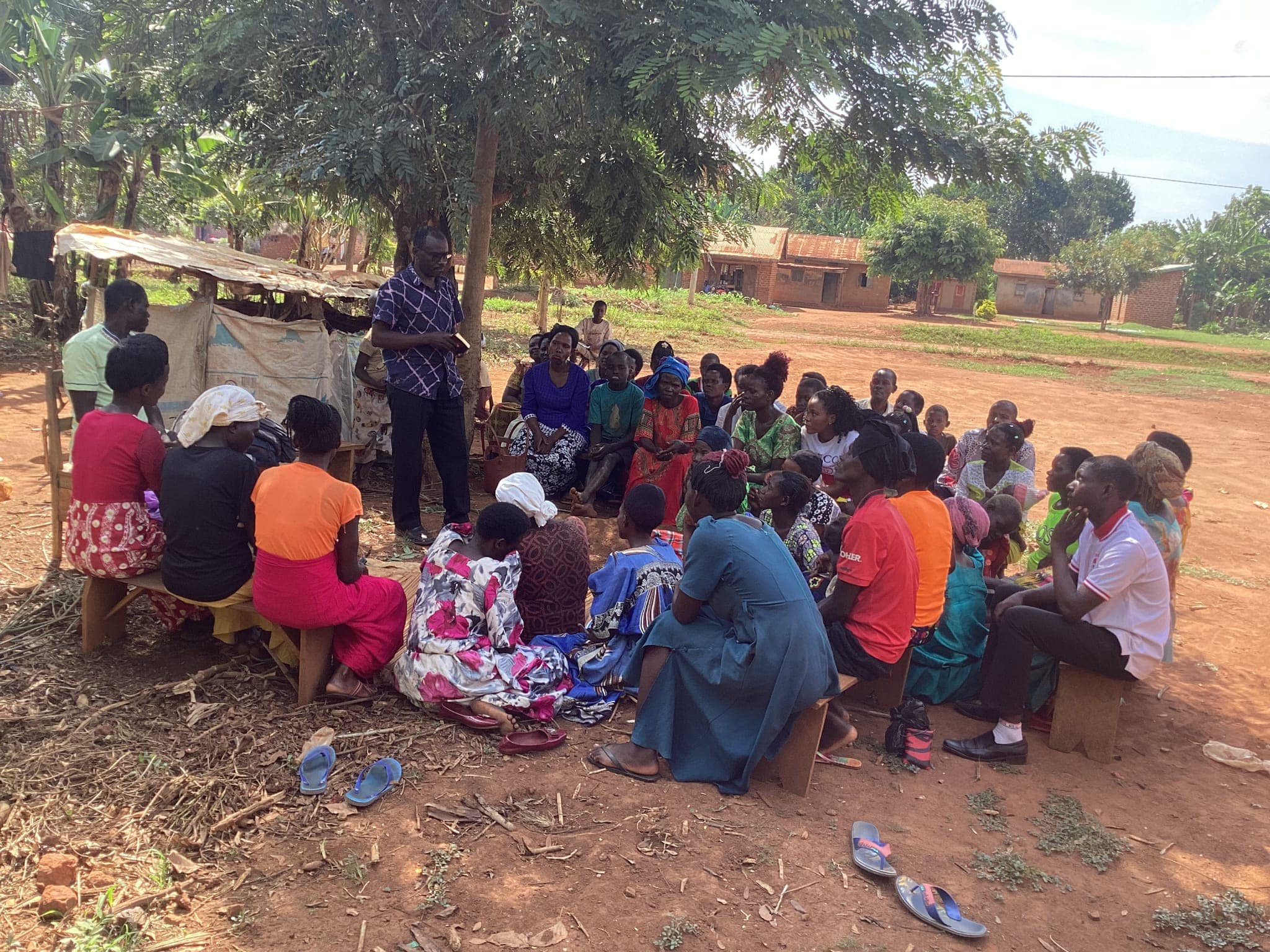
I met with Pastor Joshua Ssemanda, Uganda national coordinator for Africans Training Africans (ATA). Joshua travels the length and breadth of Uganda, visiting some of the remotest regions to mentor, encourage and train rural pastors.
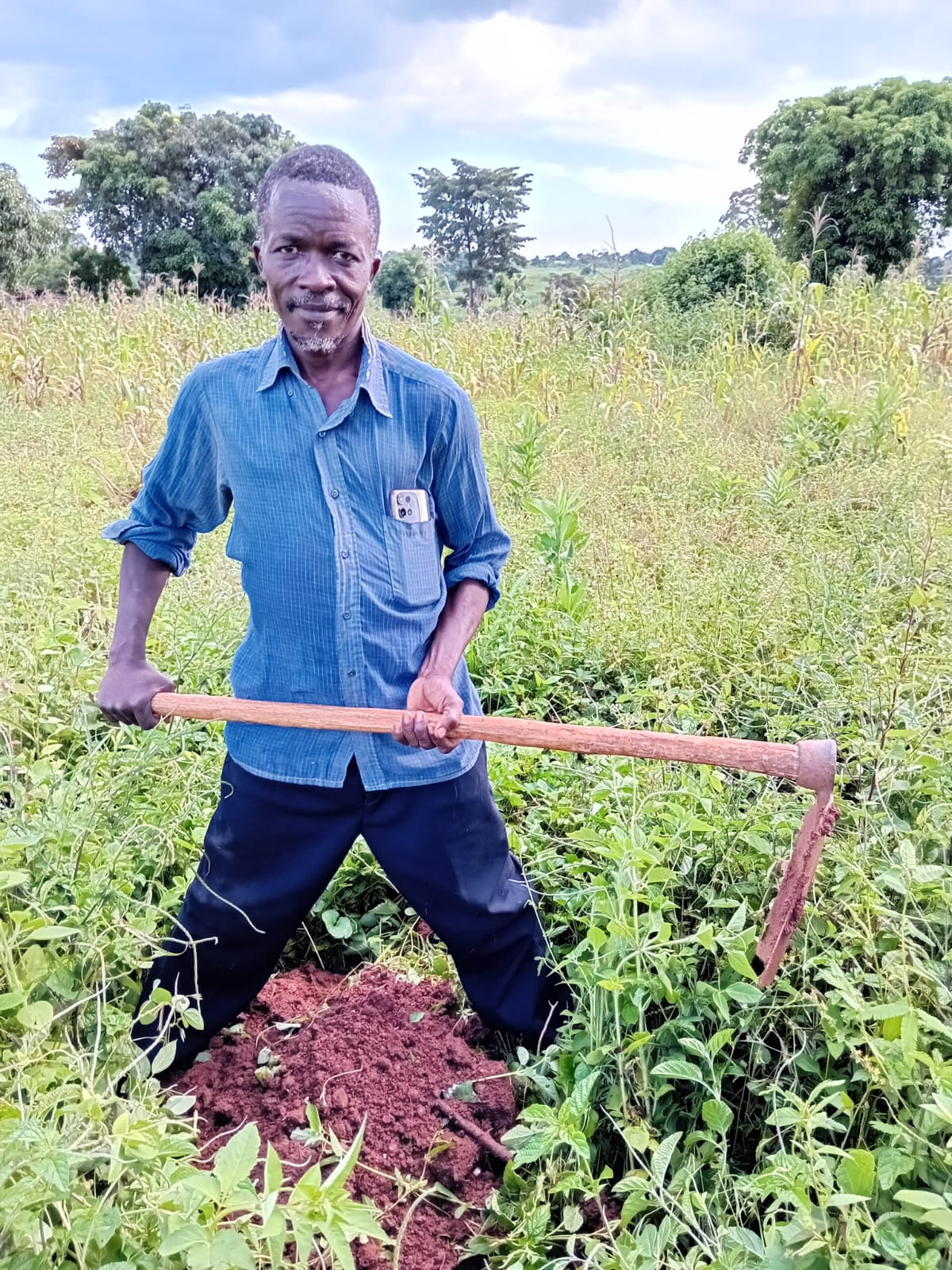
Musa, caretaker at Bulogo Primary School, who helped the children plant 250 trees during my visit. I love the juxtaposition of tradition hoe with the smartphone in his shirt pocket. I find this symbolic of continuity and change across the continent of Africa.
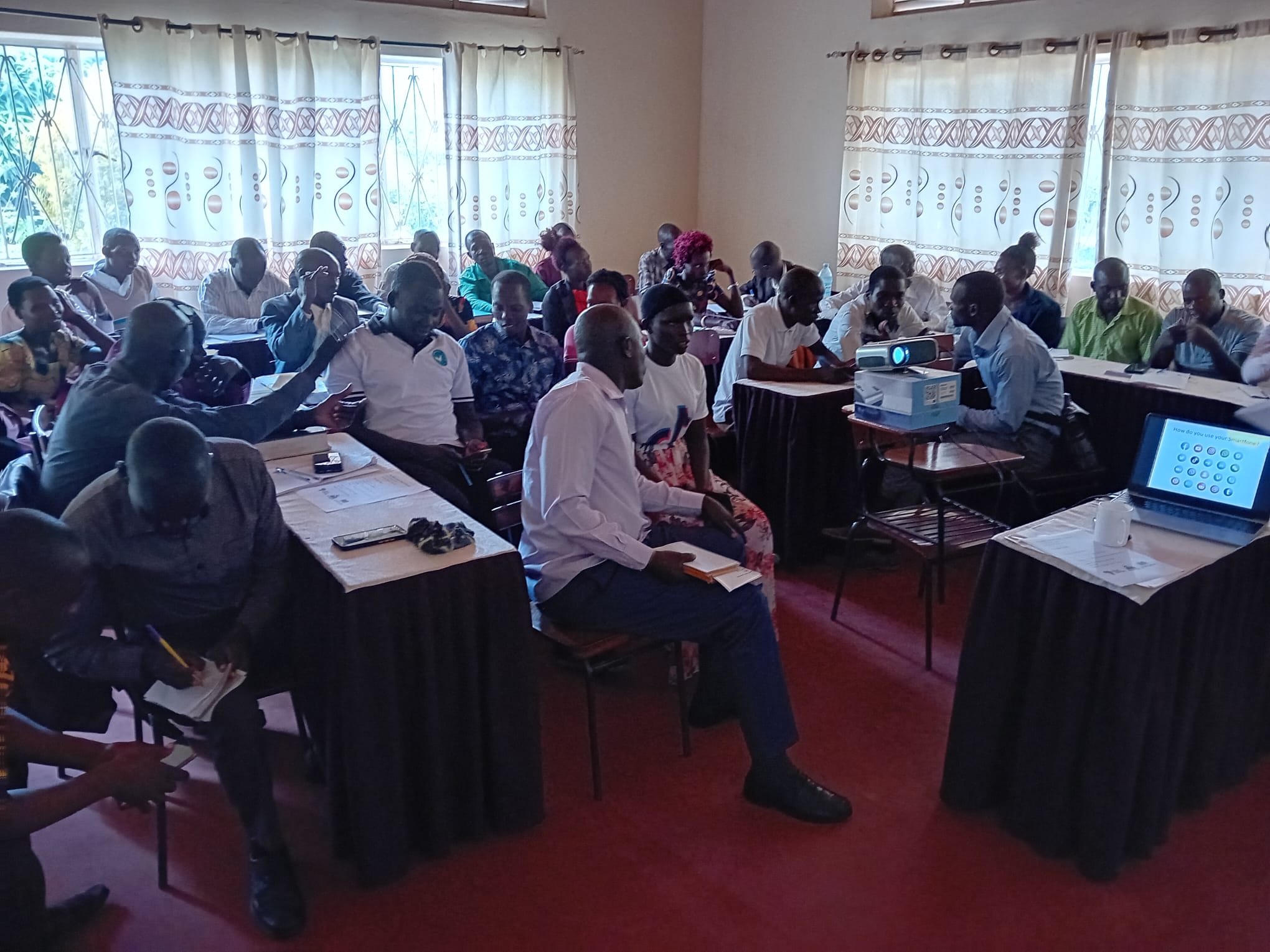
Moyo conference with 35 South Sudanese pastors . We are moving from a Digital Theology taster session to an eVitabu induction workshop.
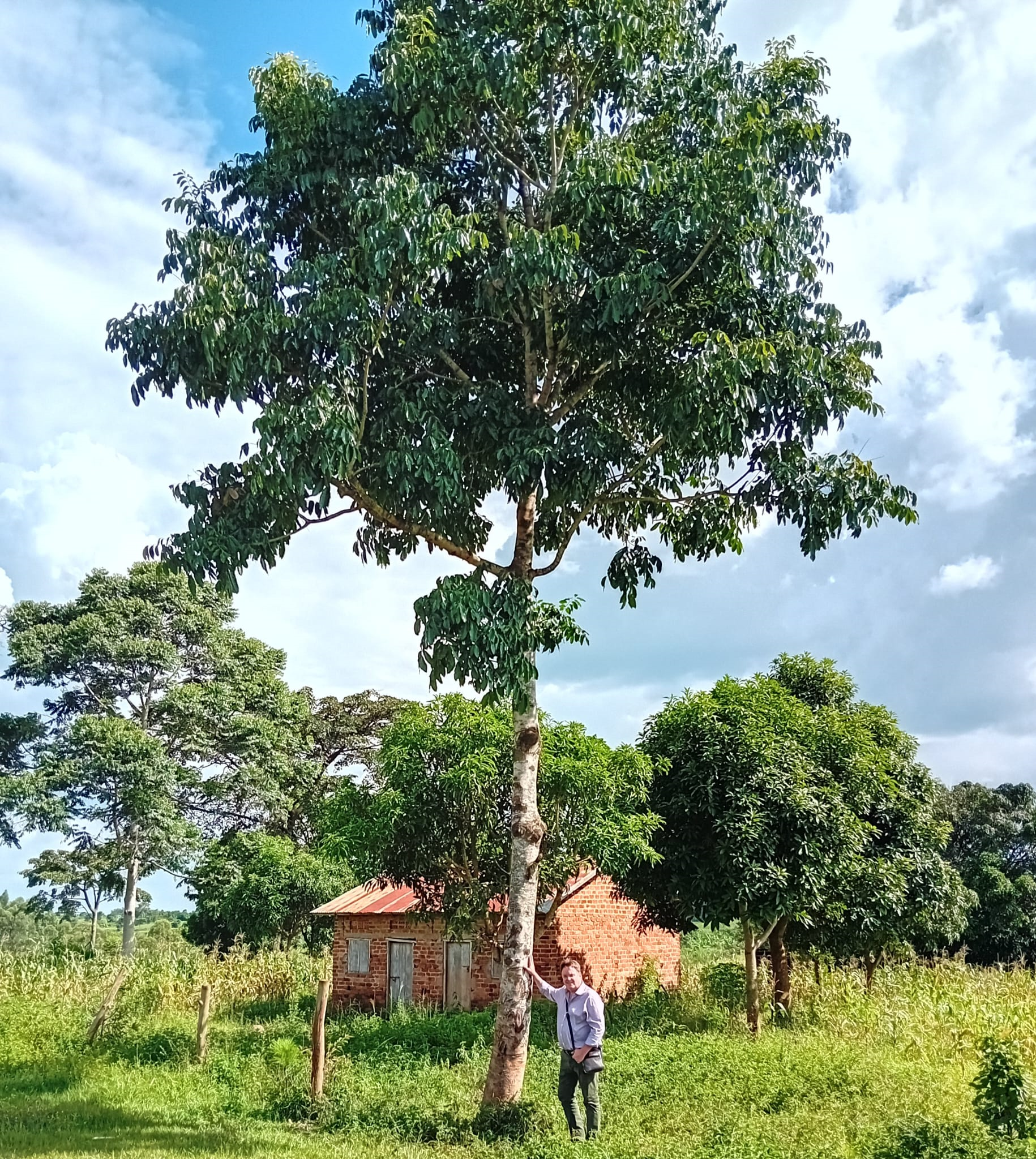
I planted this mahogany tree at Bulogo in 2015 on one of my first visits to Uganda for APF. Its growth is somehow symbolic of the increasing influence of APF in the continent through eVitabu and our partners.
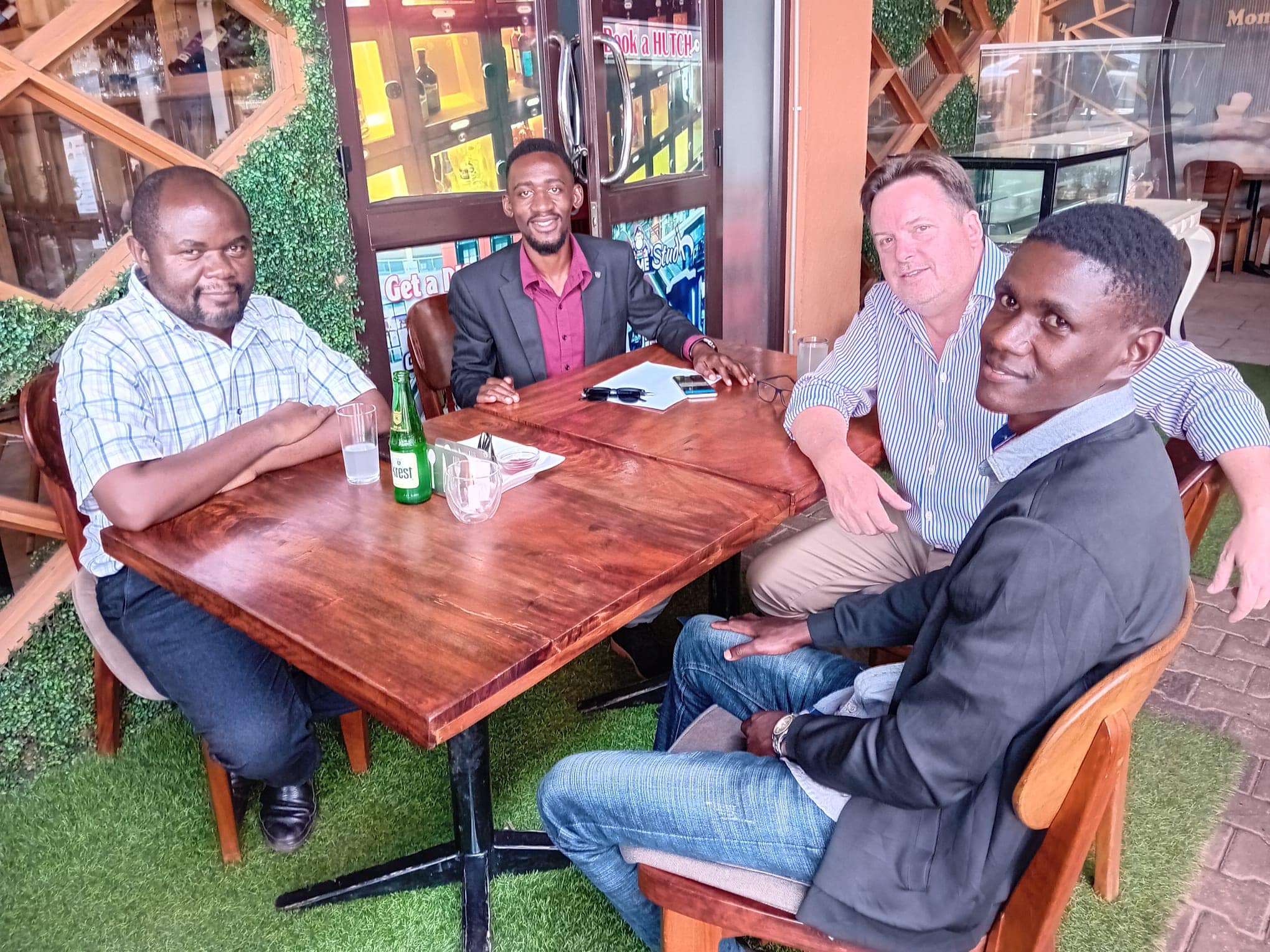
Lunch with old friends Walubo Jude, Makos Pearson, and Kiiza Geoffrey. Dave shared that he has known some of these men since they were boys and they are now fathers. Great time discussing politics, rugby and parenthood!.
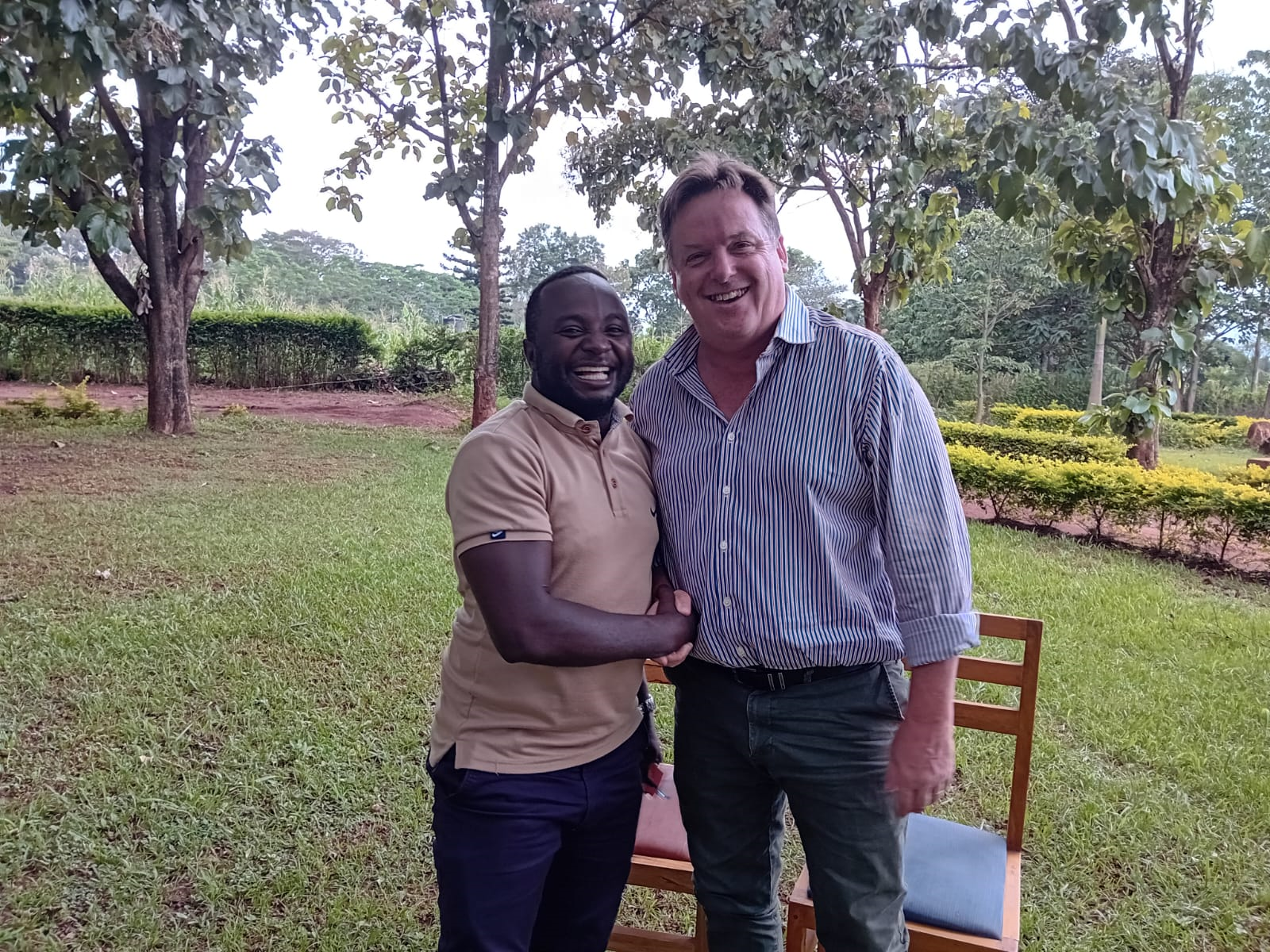
A brief but joyful and productive meeting with Rukundo Abel, national overseer for YWAM in Uganda. He has an infectious passion for sharing Bible teaching and ending Bible poverty. Abel installed eVitabu on his phone and is encouraging YWAM staff to download it.

I had a productive morning with Revd Bernard Obuya Obuya, president of the Baptist Convention of Kenya, and members of his team. There is likely to be an opportunity in 2024 to do an eVitabu workshop with regional overseers and other key Baptist leaders, as well as a request for study Bibles for Baptist pastors and local language Bibles for church congregations in rural Kenya.

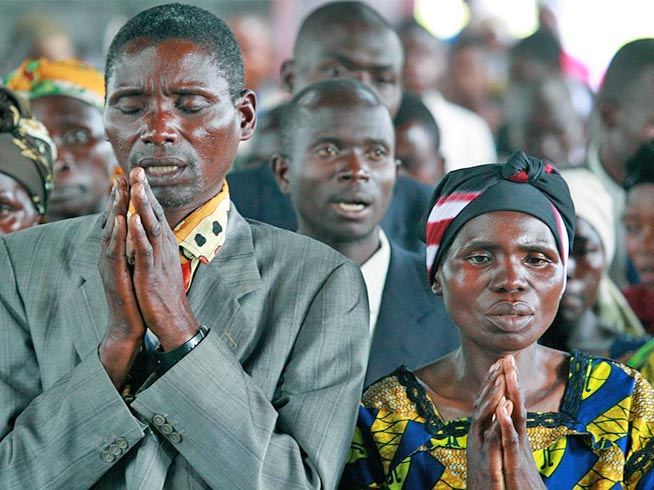
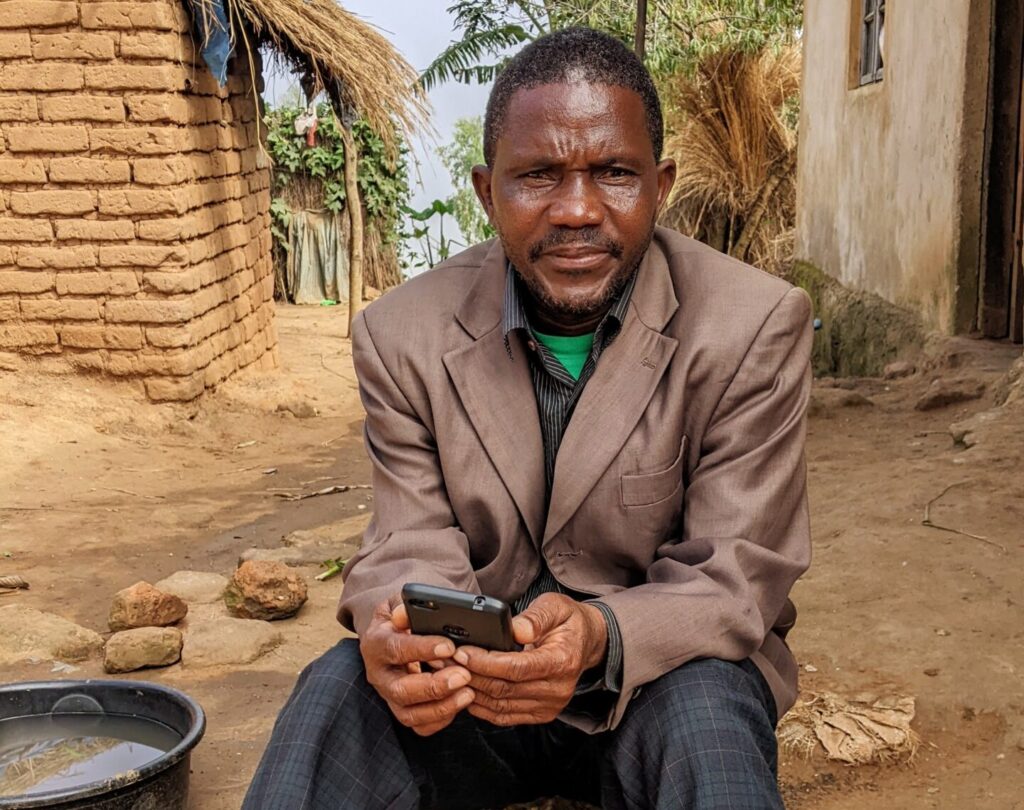
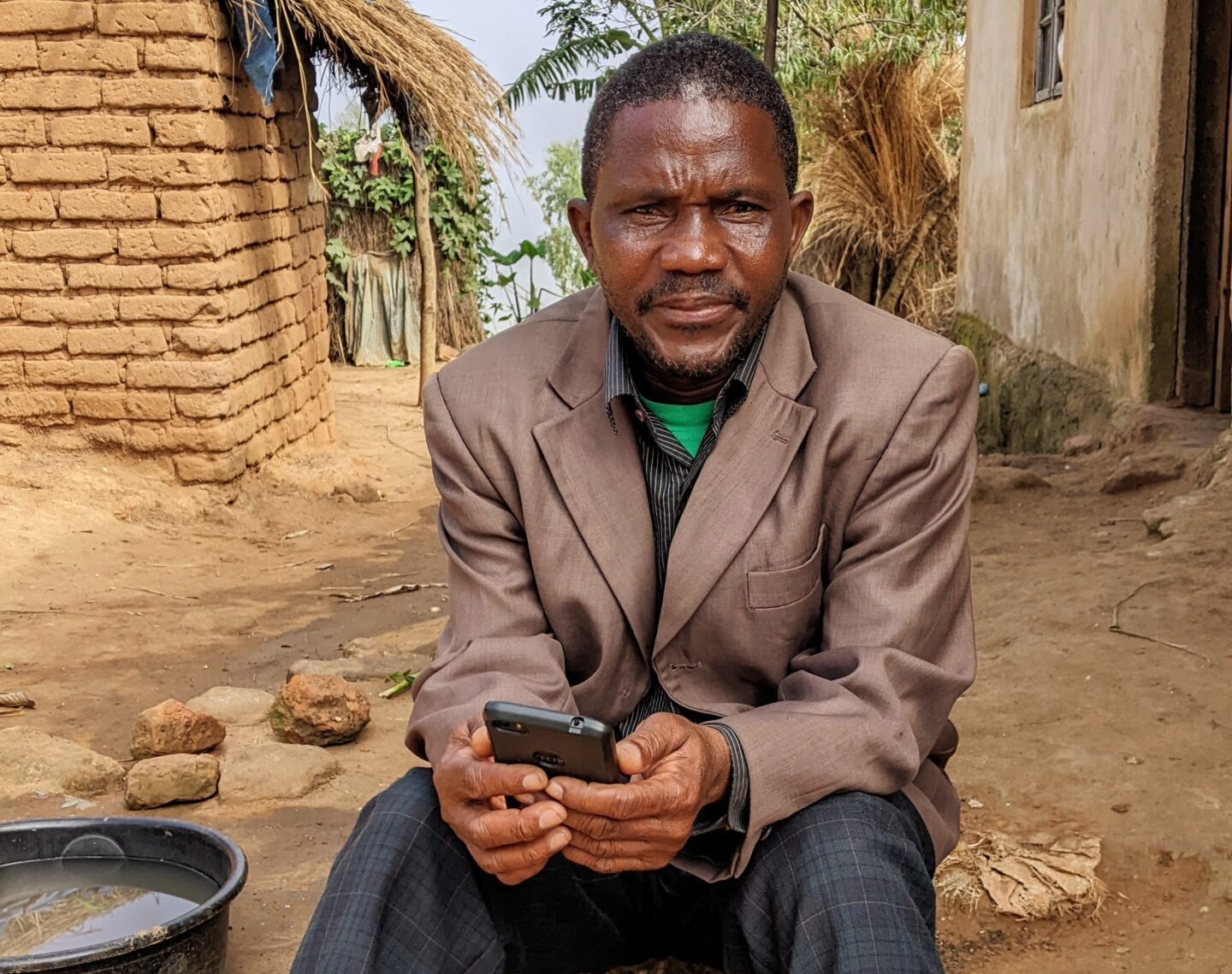
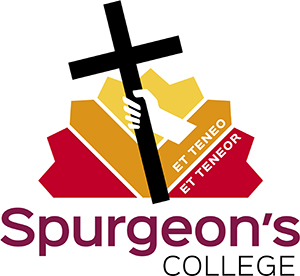
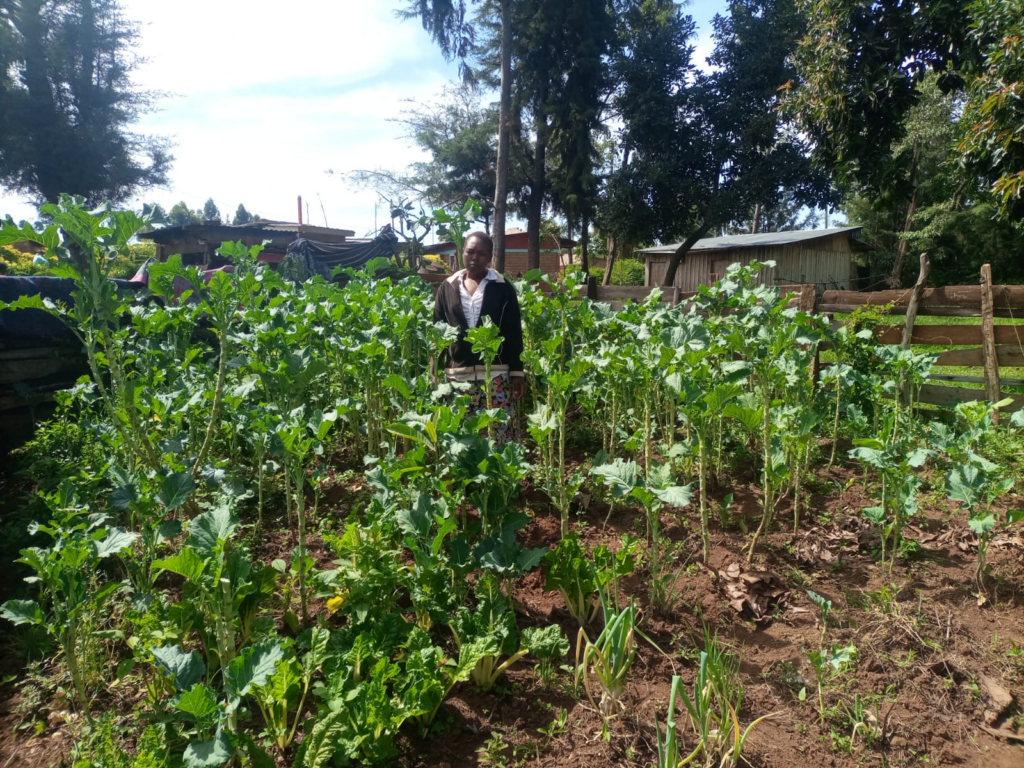
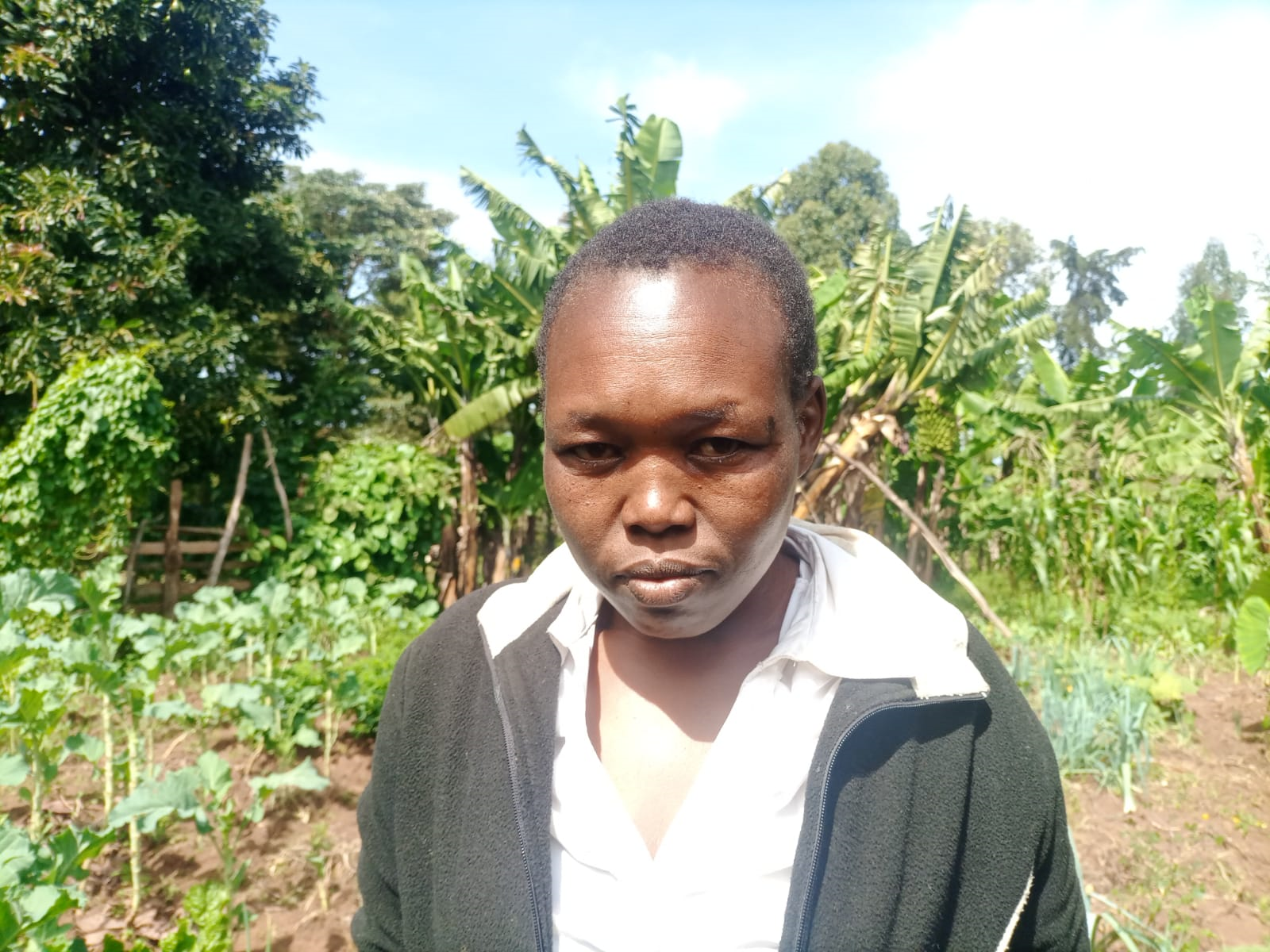
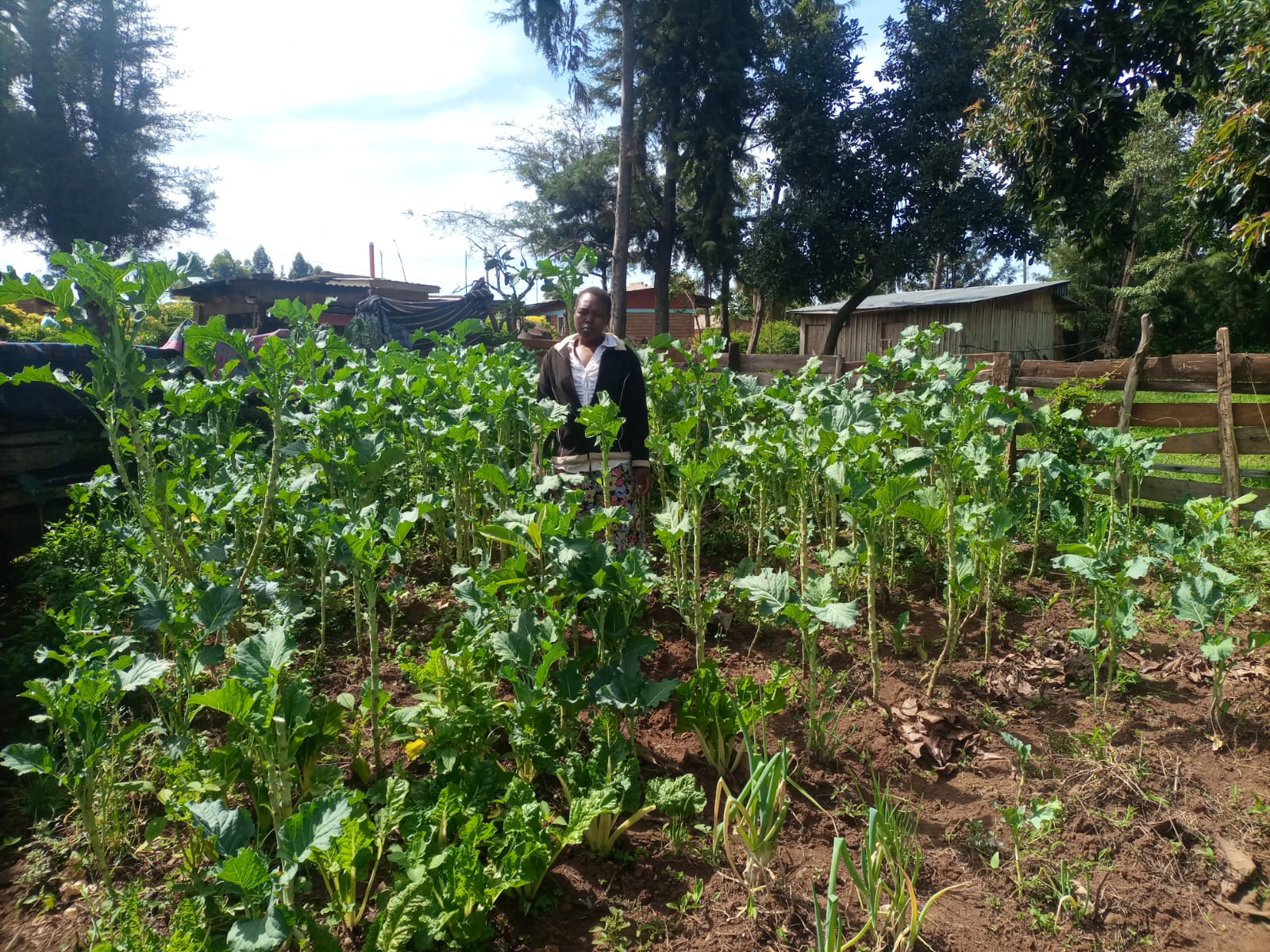
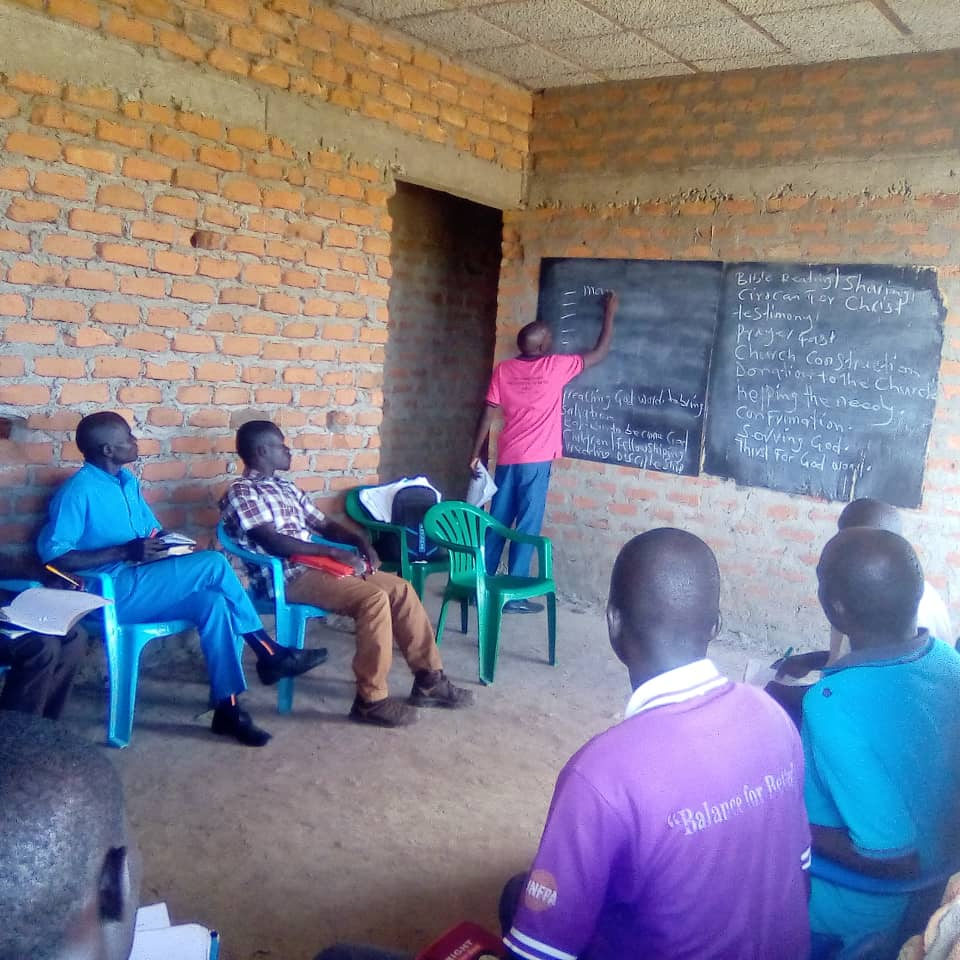
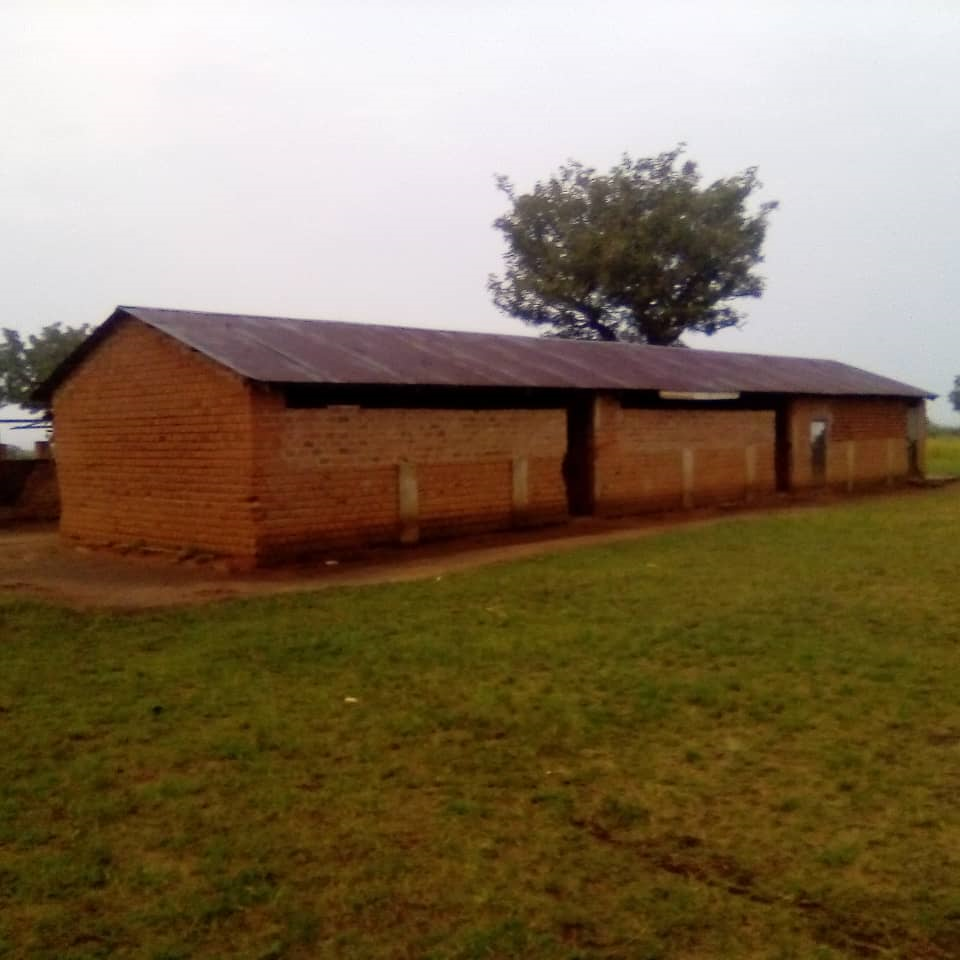
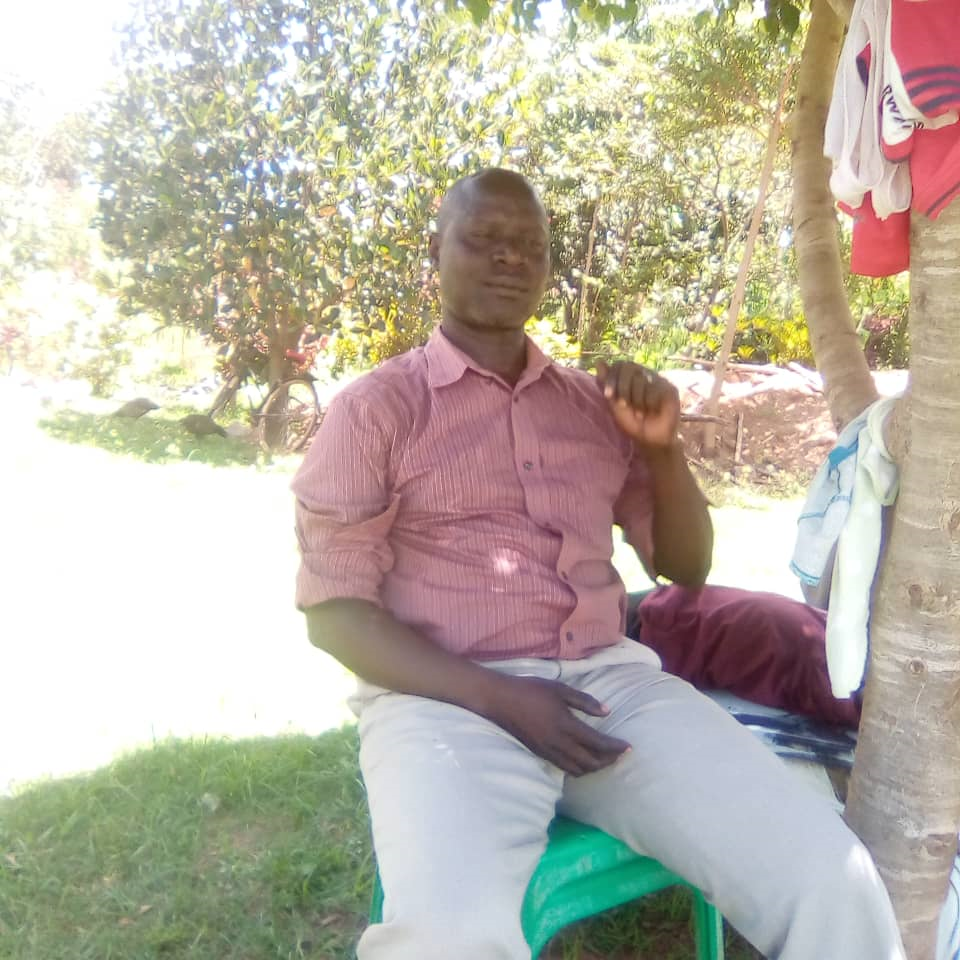
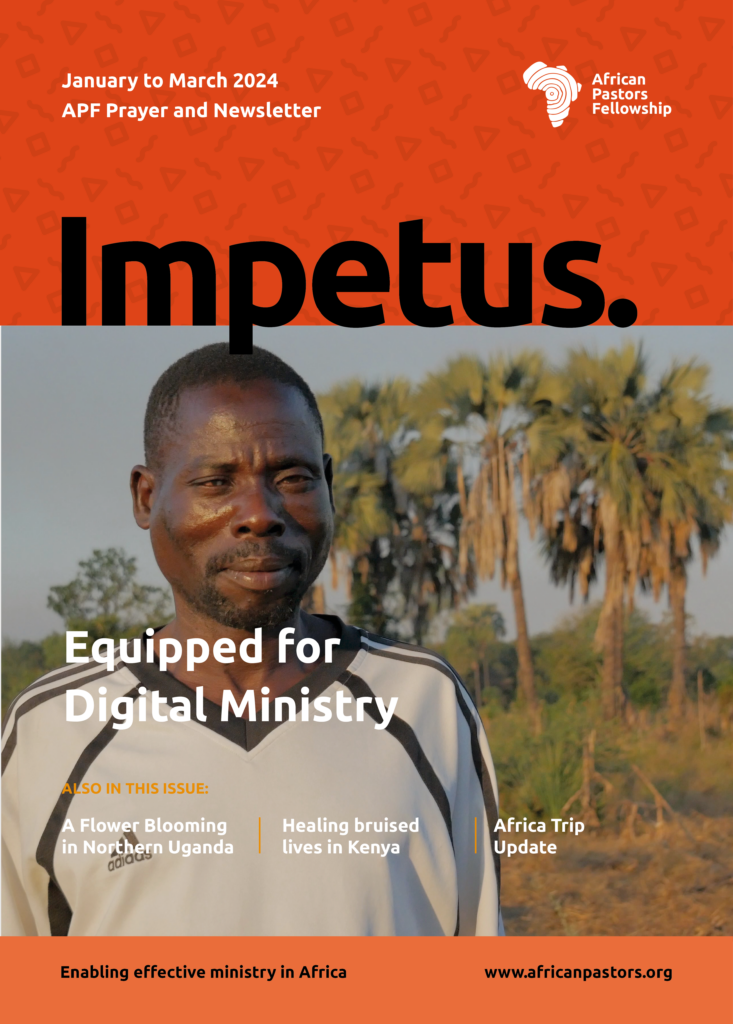
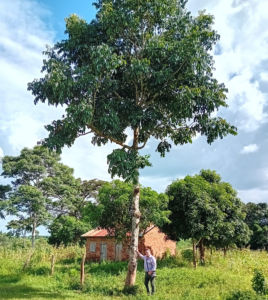 I planted the mahogany tree in this picture at Bulogo Primary School on one of my first trips to Africa as APF CEO. Its growth is remarkable! Somehow it symbolises the reach and influence of APF, especially through eVitabu and our dedicated African Training Partners in the intervening years.
I planted the mahogany tree in this picture at Bulogo Primary School on one of my first trips to Africa as APF CEO. Its growth is remarkable! Somehow it symbolises the reach and influence of APF, especially through eVitabu and our dedicated African Training Partners in the intervening years.
